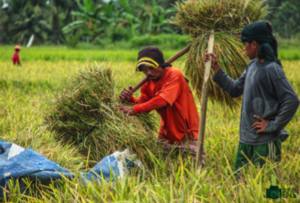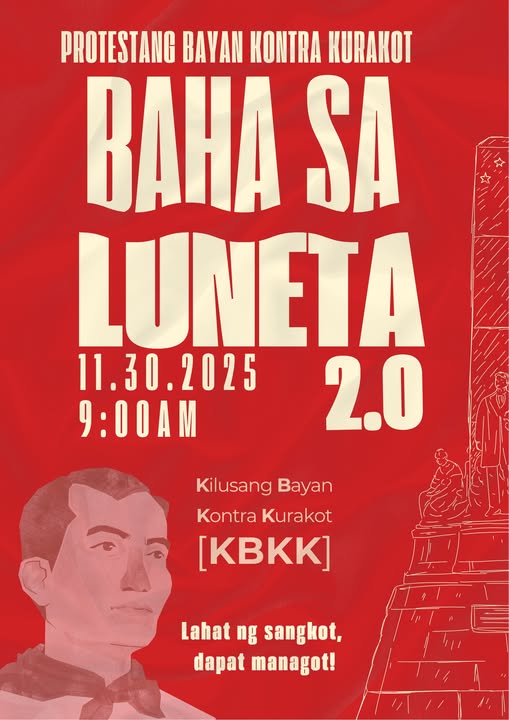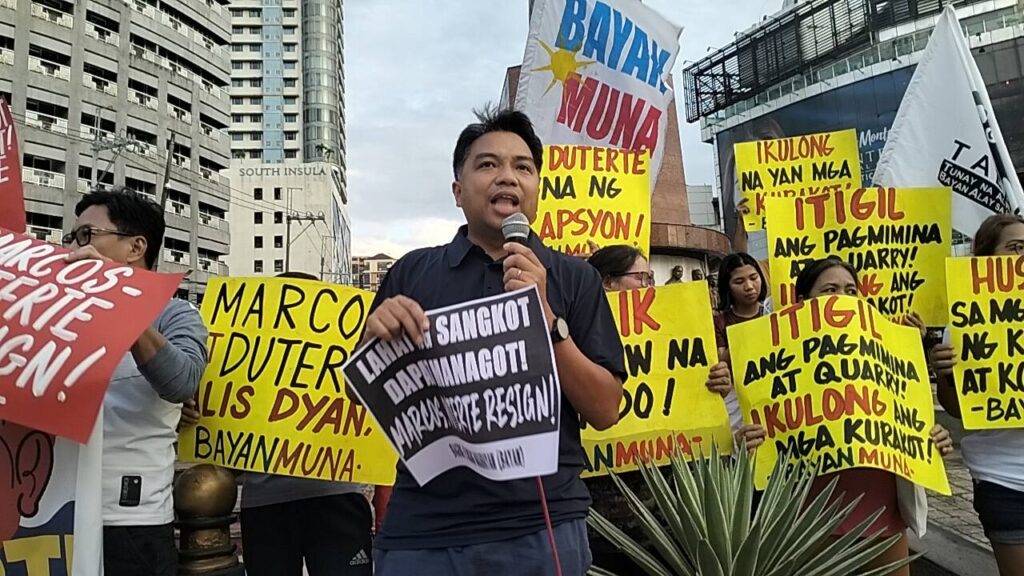📷Filipino farmers (ibon.org)
“Katanggap-tanggap lang ang pagsisi ni Marcos. Jr. sa basura kung ang tinutukoy nitong basura ay sarili niyang pamamahala.”
Unyon ng mga Manggagawa sa Agrikultura (UMA, Federation of Agricultural Workers) slammed Ferdinand Marcos Jr. for simplistically pinning blame on trash and the climate crisis for the fatal floods that came with Typhoon Carina the other day.
According to the federation, Marcos Jr. really was his dictator-father’s son for rejecting accountability over the country’s disaster unpreparedness. Worse than unprepared, it was the government that pushed the people over the precipice of disaster.
Even if one were to take seriously the president’s garbage excuse, one still needed to examine the underlying causes of garbage proliferation — from the overproduction of single-use plastics to the impoverishment of consumers unable to afford alternatives.
Moreover, living conditions in and out of the cities most ravaged by the typhoon were barely humane to begin with. That none of the 5,500 flood control projects Marcos Jr. had boasted about addressed the metro’s drainage system only aggravated the situation.
“Sintomas ng mas malalalim na suliraning hindi tinutugunan ng estado ang pagkalat ng basura, at ang pagpasa ng sisi sa simpleng pagtapon ng taumbayan ng basura ay anyo ng victim-blaming,” explained UMA national chairperson Ariel ‘Ka Ayik’ Casilao.
“Bagkus, ang dapat sisihin ni Marcos Jr. ay ang basura nitong pamamahala, pangunahin ang pagpapakasangkapan nito sa imperyalistang interes na nagwawasak sa kalikasan, sumasabotahe sa agrikultura, at humaharang sa industriyalisasyon.”
PLANTATION EXPANSION AGGRAVATING THE CLIMATE CRISIS
UMA emphasized the US-Marcos Jr. regime’s promotion of the corporate plantation system not only undermined the country’s food sovereignty; its attendant monoculture of high-value crops (HVCs) made landscapes more prone to floods and droughts.
Environmental resilience required biodiversity that could be accommodated and protected through agroecological farming practices among small-holding farmers. But the monoculture of HVC plantations under the land monopoly of corporations wrecked it.
The very formation of corporate plantations had long depended on such land monopoly, historically carried out through colonial and neo-colonial landgrabbing practices — landgrabbing that continued to this day and given a legal veneer by the state.
In June last year, Marcos Jr. signed a deal with agri-giant Itochu to increase pineapple exports to one million metric tons by 2025. To accomplish this, the Japanese conglomerate would have to expand its plantation in Polomolok, South Cotabato.
This helped realize former President Rodrigo Duterte’s aim of growing the plantation system to cover as much as 1/5 of the country’s total agricultural lands. Marcos Jr. pursued the same goal in his bid to allow 100% foreign ownership of land.
The corporate plantation system also exhibited an over-reliance on synthetic chemical pesticides and fertilizers. These added to greenhouse gases that aggravated the raging climate crisis, on top of damaging the health of precarious agri-workers.
Peasants and workers would also be in a better position to advance mechanisms for social welfare had the state not routinely violated their freedoms of expression, association, and assembly through red-tagging, union-busting, and even extra-judicial killing.
“Kapag umalma naman ang uring magsasaka, tinatapatan ito ng estado ng pasistang dahas,” lamented Ka Ayik. “72 pesante na ang pinatay ng rehimeng ito. Naisip siguro ng kalikasan na siya ng mismo ang magpaparamdam sa estado ng epekto ng monopolyo sa lupa.”
MASS MOVEMENT VS. STATE ABANDONMENT
Just two days after Marcos Jr. boasted of its flood control spending of P255 billion, nature itself was quick to disprove his claims. Then just a day after the floods that came with Typhoon Carina, the president himself was quick to dismiss his own hand in the catastrophe.
Vice-President Sara Duterte could have stepped up to lead relief operations instead of blaming people for the tragedy like the president did, but she chose to fly out of the country, doubling down on Marcos Jr.’s abandonment of typhoon-ravaged Filipinos.
Yet again, the toiling masses — from the ranks of both workers and peasants — had been left to fend for themselves. Mass organizations rose to the challenge of leading bayanihan efforts in the form of donation drives and cook-outs for their constituencies.
To add to the peasant movement’s Sagip Kanayunan series of rural assistance drives, UMA joined Sugarfolks’ Unity for Genuine Agricultural Reform’s (SUGAR) call for contributions to aid sugar workers in Batangas and Cagayan Valley.
In Sugarfolks’ Unity for Genuine Agricultural Reform – Batangas initial survey, at least 386 families had been affected by the typhoon in Calaca, Balayan, and Lemery — families who had already been struggling with the closure of the region’s biggest sugar mill and recurrent delays in government aid distribution.
SUGAR clamored for the completion of the P10,000 assistance 12,000 sugar workers had been promised since Central Azucarera Don Pedro Inc. had closed. They had also been calling on government to take over its operations and end militarization in the area.
UMA underscored the importance of solidarity over charity in times of crisis. Charity was fickle, and even climate crisis perpetrators themselves engaged in it. It was solidarity among oppressed classes sharing a common struggle that strengthened the mass movement.
“Kilusang masa ang tanging tugon sa pag-abandona ng estado sa taumbayan,” concluded the peasant leader. “Kung paano tayo magmulat, mag-organisa, at magmobilisa para sa lupa at sahod, sama-sama rin tayong kikilos bumangon mula sakuna.”




